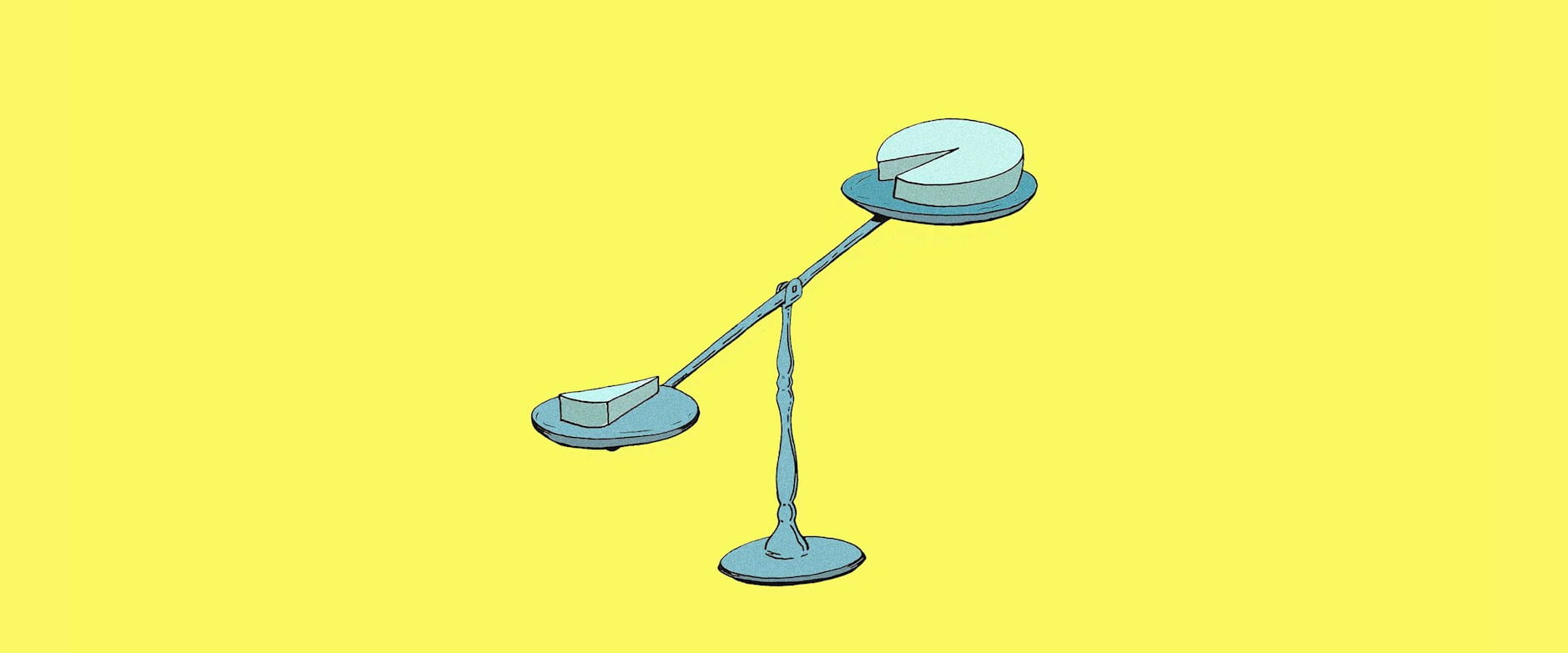The income disparity between America’s biggest earners and the vast majority of its populace has long been a source of debate among pundits, politicians, and economists. In November, University of Chicago’s Becker Friedman Institute for Research in Economics brought Thomas Piketty of the Paris School of Economics, University of Wisconsin-Madison’s Steven Durlauf, and Chicago Booth’s Kevin M. Murphy together to discuss the factors and mechanisms driving inequality in the US. (The event was cosponsored by the University of Chicago’s Human Capital and Economic Opportunity Global Working Group, the Center for the Economics of Human Development, and Chicago Harris.) Below are edited segments from their remarks; to watch the whole conversation, including comments from Nobel laureate and moderator James Heckman of the University of Chicago, visit the Becker Friedman Institute.
Piketty: Disparate educational opportunities
Unequal access to education is clearly part, possibly a big part, of the explanation for why inequality has increased so much more in the US than in the rest of the rich world—including Sweden, Germany, and Japan. In the US, as we all know, there are very good universities at the top, but the bottom half of the population does not have access to very good education and skills. I think there’s a gap between the quality of education available for the bottom groups and the top group, which is arguably larger than in Europe or in Japan. This explains partly why rising inequality has been so large in the US. In fact, it is possibly the main explanation.
Durlauf: Social segregation
The key mechanism in understanding persistent inequality is actually segregation. Economic and racial segregation of school districts, increasing segregation by income or by high-school achievement across colleges, all of these become mechanisms that translate initial inequalities to persistent inequalities, both within the life course and across generations. Policies that achieve various forms of partial integration—be they affirmative action, public-housing placement, voucher systems, or zoning rules for residential construction—all speak to the potential for altering who interacts with whom. And in my judgment, that is where the currency of egalitarian justice, to steal G. A. Cohen’s term, lies today.
Murphy: Lack of human capital
Growth in technology, in physical capital, and in human capital has increased output over time. The components work in opposite directions on inequality. Better technology and more physical capital tend to raise the demand for skilled workers relative to unskilled workers, creating opportunities for new skilled-worker activities while replacing the activities traditionally performed by less-skilled workers. The growth in human capital enhances the output-expanding effect of technological change and physical capital growth but counteracts the inequality-increasing aspect of those same changes. What happens to inequality in many dimensions, particularly across education, is sort of a tug of war with growth technology and physical capital on the one hand, on the demand side of the model, and growth and human capital on the supply side. When demand grows faster than the supply, prices, here the return to human capital, rise. When supply grows faster than demand, prices fall. Since about 1980 in the US, we’ve seen the supply side fall short. The supply of human capital hasn’t grown as fast as demand over that period, and—not surprisingly, from the point of view of economics—inequality has risen, and risen dramatically.
Your Privacy
We want to demonstrate our commitment to your privacy. Please review Chicago Booth's privacy notice, which provides information explaining how and why we collect particular information when you visit our website.
